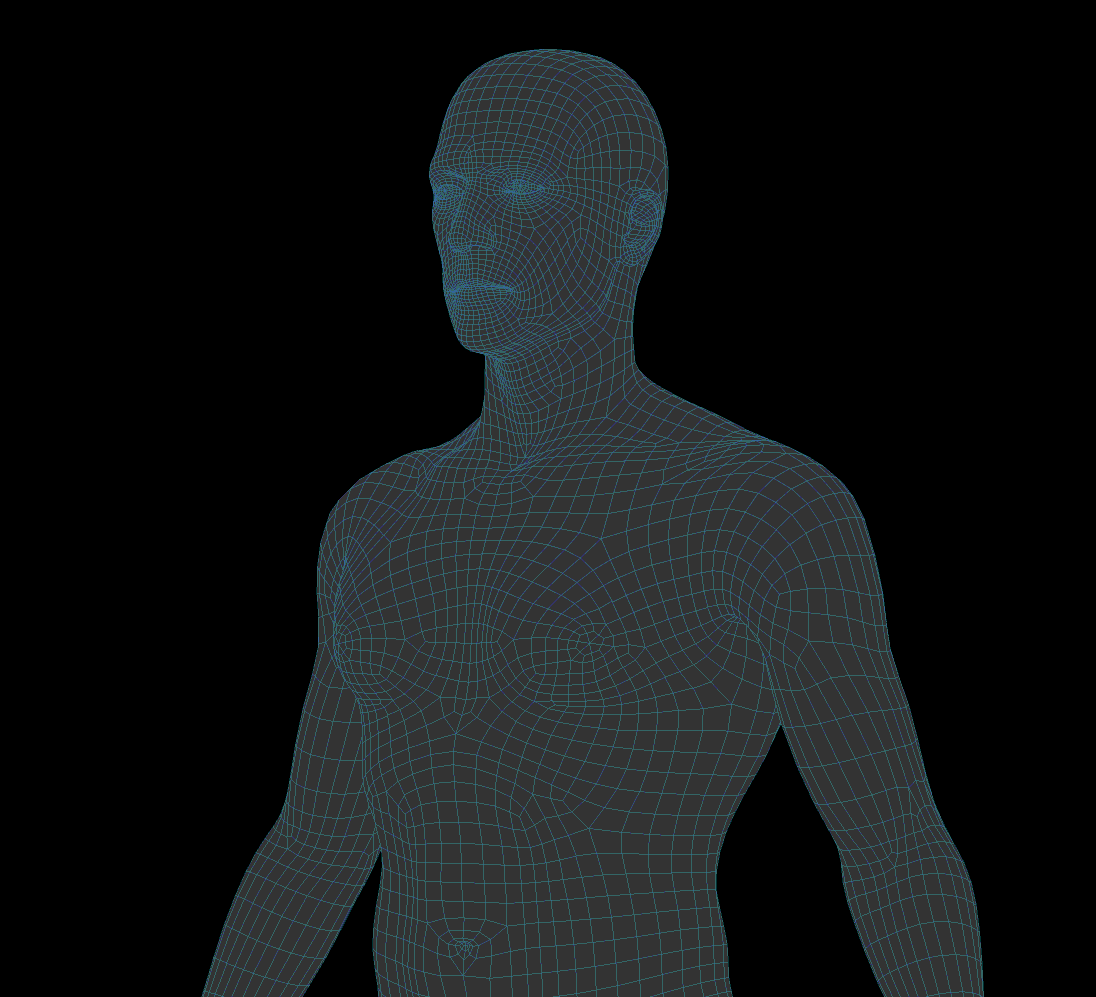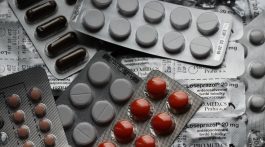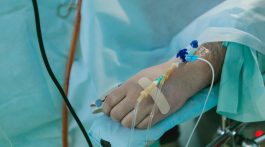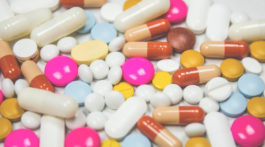Editor's Rating
This drug causes boys to develop female like breasts which requires surgery to fix.
Help for People Looking for a Risperdal Gynecomastia Lawyer
There are currently many lawsuits being filed against the manufacturers of Risperdal alleging that Risperdal increases prolactin in young men. Prolactin is a hormone which stimulates breast development. Teenage boys who have taken Risperdal are displaying increased levels of prolactin and as a result they may develop male breasts. The medical name for this is gynecomastia. Young men, teenage boys and men who develop gynecomastia may experience pain or nipple discharge as well as pyschological damage. If your son has developed male breasts after taking Risperdal, you may have grounds to file a lawsuit. Call and speak to a Risperdal gynecomastia lawyer right away to find out what your legal rights and options are.
It’s not a complete surprise that this is happening to teenage boys and young men. Back in 2006 the Journal of Clinical Psychopharmacology said that risperidone (the generic name of Risperdal) “when administered to adolescents at doses commonly used for the treatment of psychotic symptoms can strongly increase prolactin levels, with clinical consequences such as gynecomastia.” The article also mentioned that because there are no long-term studies, caution should be taken when the drug is prescribed to children and adolescents. Johnson and Johnson knew about the dangers, yet continued to sell their product in yet another example of pharmaeceutical companies putting profits over the safety and health of people.
Even though it is 2015 and Risperdal lawsuits are currently being filed, there have been reports of the dangers of risperidone for many years:
- Page from U.S. National Library of Medicine in 2007 warning Risperdal may increase boys and male teenagers breast size
- Wall Street Journal blog post from 2008 on the troubling side effects of Risperdal in boys
- News article from 2009 talking about ADHD treatment and boys developing female breasts
- Bloomberg article from 2012 alleging that Johnson & Johnson knew about the harm Risperdal caused young boys
As you can see this problem is not something new!
Psychological Damage of Gynecomastia in Boys
 It is understandable that boys who develop female like breasts suffer psychological damage, even in mild cases. Researchers who administered tests to boys with breast enlargement found the adolescents had lower scores on a standard quality of life assessment. They found boys to have lower physical health scores, lower social functioning, lower mental health and lower general health. It’s not hard to imagine how a teen with feminine like breasts being made fun of at schools in gyms and locker rooms. Unfortunately surgery is often required to fix the problem.
It is understandable that boys who develop female like breasts suffer psychological damage, even in mild cases. Researchers who administered tests to boys with breast enlargement found the adolescents had lower scores on a standard quality of life assessment. They found boys to have lower physical health scores, lower social functioning, lower mental health and lower general health. It’s not hard to imagine how a teen with feminine like breasts being made fun of at schools in gyms and locker rooms. Unfortunately surgery is often required to fix the problem.
Although overweight boys are most commonly the ones most likely to develop gynecomastia, it’s not always an issue of weight and losing weight won’t solve the problem. If the problem involves glandular enlargement, surgery is typically required to fix the problem. If your son has gynecomastia and has suffered mental and physical pain, you should have your case evaluated for free by an experienced risperdal lawyer.
Sample Adverse Events Reported to the FDA

- December 12, 2014 – Male patient taking Risperdal (risperidone) had multiple side effects including Breast enlargement, Galactorrhoea, Gynaecomastia, Dyskinesia.
- November 6, 2014 – Male patient weighing 260 lbs reported Arthropathy, Hypoaesthesia, and Breast enlargement.
- June 9, 2014 – A 29 year old male patient weighing 230 lbs reported multiple side effects including Anger, Crying, Breast enlargement, Dysuria, Gastrointestinal motility disorder, Gynaecomastia.
- May 15, 2014 – A 53 year old male reports multiple side effects including Hip arthroplasty, Deformity, Breast tenderness, Infection, Musculoskeletal chest pain, Hyperhidrosis, Road traffic accident, Pain, Depression, Nausea, Breast enlargement, Gynaecomastia. He had been taking risperidone since 2011. He was also on multiple other medications as listed in the report.
- July 26th, 2012 – An 8 year old boy (yes, 8 years old!) weighing 95 lbs. reported the following reactions: Breast enlargement, Diabetes mellitus and Gynaecomastia. This adverse event was reported by a lawyer.
More Information on Risperdal
Risperidone (Risperdal) is an antipsychotic drug used to treat conditions like bipolar disorder and schizophrenia, as well as symptoms of violence and aggression in autism. This powerful drug is also being used in alarming numbers in children with ADHD, which is clearly an off label use of the drug. In other words, Risperdal has never been approved by the FDA for use of conditions like ADHD, therefore, using it in this way is considered “off label.” Other off label uses include prescriptions to elderly patients for dementia and as an augmentation strategy for depression and anxiety disorders.
In fact, the trend in prescribing antipsychotics for off labels use has been increasing at an alarming rate over the years, and this in spite of the lack of evidence that they are any more effective in treating the conditions they are being prescribed for than traditional medications that have fewer (and less dangerous) side effects.
Antipsychotics like Risperidone commonly come with a host of side effects and should not be used lightly regardless of the condition it is used for or whether the FDA has approved its use in the general public or not. Some of the side effects include:
- Somnolence
- Anxiety
- Upset stomach
- Extrapyramidal symptoms (EPS)
- Nausea and Vomiting
- Diarrhea
- Abdominal pain
- Tremors
- Blurred vision
- Diabetes
- Stroke
- Seizures
- Painful erection (priapism)
- Neuroleptic malignant syndrome
- Tardive dyskinesia
- Hyperprolactinemia
- Constipation
- Weight gain
- Dizziness
- Rash
Consumers cannot assume a drug’s safety simply because a drug company reports that clinical trials have been conducted or that it has received permission to market its product.
What You Should Know About the Clinical Trial Process
Before a drug can be released for public use, a carefully controlled clinical trial should be conducted in order to ensure that the benefits of taking the drug outweigh the risks involved in its use. There are several steps (phases) that must be followed in a well-designed study protocol where researchers gather data and then establish the necessary safety profile for each drug. In order to do this, a representative and adequate sample size (in other words, plenty of people in your study who are similar to those who will be taking the drug for the condition you are hoping to treat) is needed. The main problem clinical trials face is:
- Small, inadequate sample size
- Limited age range
- Generally healthy volunteers
- Study subjects are typically not allowed to take any other drugs except the one being tested
- Long-term effects of the drug are often not observed
- Drugs and their effects are seen under most favorable and controlled conditions
While some of these may certainly be necessary conditions for initial testing of the drug, once the drug is distributed to the population at large – who obviously will not fit the above criteria – problems inevitably begin to surface. Why the drug companies refuse to wait until safety can be established is clearly a matter of money; these trials themselves can cost an incredible amount to conduct, and they want to recoup their costs as quickly as possible. It is also the reason they are willing to make more of their findings than they legitimately should.
Apparently, these are risks that the drug companies are willing to take with your health, and for good reason: between 2003 and 2012 alone the top 11 pharmaceutical companies earned a net profit of over $711 billion – $85 billion in 2012 alone. These companies are spending millions on marketing and advertising, especially to the doctors who are prescribing these drugs, but are reaping billions for their efforts, despite the deadly risks their drugs carry. They are also willing to invent new uses for old drugs in order to keep them on the market either by giving them new names or by finding “new” conditions for them to treat. The fact that lawsuits are being filed against them for the horrific side effects doesn’t stop them, either.
Risperdal Black Box Warnings and Lawsuits
Since its approval by the FDA in 1995, controversy has surround the use of Risperidone. In 2005, the FDA required that Black Box Warnings be included in packaging when a study showed that the death rate in elderly patients who used Risperdal was 1.7 times higher than those who had taken the placebo. Black Box Warnings are the strictest put on prescription drugs required by the FDA.
In 2006, a study by Duke University revealed that the use of Risperdal could lead to a condition called gynecomastia, or breast growth in males, and a 2008 study showed how it led to the production of prolactin in males, the hormone responsible for breast milk production. It is no surprise that some 70% of young males needing mastectomies have been victims of gynecomastia resulting from the use of antipsychotic drugs like Risperdal. Despite these and other studies showing serious adverse effects related to Risperdal use, this drug continues to be prescribed to children and elderly patients, young men have required mastectomies, and the FDA has refused to issue stronger warnings about its dangers.
In 2010, claims that Johnson & Johnson paid $50 million in kickbacks to a pharmaceutical supply company to market their drug to nursing homes between 1999 and 2004 were made in a government lawsuit. In 2011, a suit against the company for not disclosing serious side effects such as diabetes were also brought (among others), and in 2012, Johnson & Johnson was fined $1.2 billion for downplaying the multiple risks associated with Risperdal. The case went back and forth in court and was eventually settled for $2.2 billion.
What About Side Effects?
When it comes to actual benefits (or not), many of these studies are not being released to the public, or are being glossed over so that results fall more favorably on the marketing side of things, so it is difficult to tell how much benefit outweighs cost in the case of Risperdal and just who should be exposed to such risks. The problem of bias is huge, as many of these trials are funded by the drug companies themselves. Of even greater concern is when the FDA admits to a clear conflict of interest when it comes to approving certain drugs or devices for public use.
As for the side effects of these drugs, the most common include drowsiness, dry mouth, constipation, weight changes (usually weight gain), headache, cough, runny or stuffy nose, headache, nausea, and abdominal distress, to name a few. There are more serious side effects of course, some of which can be permanent and have life-long implications.
Antipsychotics can cause serious reactions called extra pyramidal side effects (EPS) that include conditions referred to as tardive dyskinesia, Parkinsonism, and akathisia. Symptoms such as drooling, muscle twitching, and other motor tics can occur (among others) with the use of these drugs. While some symptoms may abate when medication is stopped, these side effects can be permanent.
EPS are dystonic (muscle control) reactions (intermittent spasms or involuntary contractions of the face, neck, or other muscles in the body) associated with antipsychotic drug use. Tardive dyskinesia (TD) is a serious side effect of antipsychotics like Risperdal and involves involuntary, repetitive body movements like protruding tongue, sucking motions, and other uncontrolled facial movements. Parkinsonism (muscular stiffness, tremors, and the inability to control one’s muscle movements) can also result from the use of these drugs. Some report restlessness in the limbs (akathisia) that is characterized by quivering muscles and tend to be highest among young males.
Specifically, some less common, but severe and permanent side effects have also been reported from the use of Risperidone, a commonly prescribed antipsychotic. One of the most troubling has been gynecomastia, the development of breast tissue in males. This condition is permanent, even if the drug is stopped. Symptoms include pain and tenderness in one or both breasts that may begin as a nodule on the nipple. There may be discharge from the nipples, and breast development may be uneven and lopsided. The only way to deal with the excess tissue is surgical removal of the breast growth, leaving lifelong scars.
Needless to say, the emotional damage to a young male can be devastating, and the trauma experienced by children and adolescents with this condition can last well into adulthood. Adolescent gynecomastia occurs in the most difficult period of life for a young man, as the proper estrogen to testosterone levels are interrupted increasing their distress. One study found that males with this condition showed significantly elevated levels of depression, anxiety, and social phobia compared to controls, threatening both self-esteem and sexual identity.
Another serious side effect of Risperdal is the production of pituitary tumors. Because this drugs acts on the pituitary gland and increases prolactin levels, the gland may grow in size, interrupting normal hormone production, leading to serious potential health concerns that include vision problems, internal bleeding, headaches, and convulsions.
Type II diabetes is also a concern with Risperdal use as elevated blood sugar levels rise. Studies have shown a much higher incidence of Type II diabetes in patients who are administered antipsychotics, therefore blood glucose levels need to be monitored regularly. Problems with extremely high glucose levels can lead to coma and even death.
Further, this drug has been shown to be unsafe in elderly populations, leading to stroke, kidney damage, low blood pressure risks, and a higher incident of death due to pneumonia and heart attack. For pregnant women, the concern is also high, as antipsychotics like Risperdal have been shown to cause birth defects, premature birth, newborn respiratory distress, and even withdrawal in newborn infants.
Why children are prescribed this drug at all is a mystery, particularly when research shows that far too many of them are being given Risperdal for conditions that are related to behavior and not psychosis. The risk for Type II diabetes triples in children in the first year for those who use this drug, and like gynecomastia, the weight gain and metabolic disorders can lead to life-long problems.
While antipsychotics certainly have their place in the treatment of serious mental disorders, too many doctors are prescribing these drugs for other conditions when they should be a last line of defense and not needlessly given to those who do not absolutely require their use.
False claims and deceptive marketing concerning Risperdal
Several Issues have come up with the marketing and the prescribing of this drug. Johnson & Johnson, the manufacturers and marketers of Risperdal, used language on the label that minimized and downplayed the harmful side effects of this medication. In addition to this, they also claimed that their drug was safer and more superior than other antipsychotic medications in its class even though sufficient evidence did not exist to validate that claim. With the help of these claims and the company’s aggressive marketing schemes, physicians readily prescribed this medication for off-label uses to help treat anxiety, attention-deficit hyperactivity disorder, obsessive-compulsive disorder, Tourette’s syndrome, and depression.
In addition, Janssen advocated for the off-label use of this drug in elderly patients suffering from dementia, despite the increased risk of stroke and death in this cohort of patients. Also, even though evidence showed that Risperdal increased the risk of diabetes, Janssen stated the opposite, saying that the use of their drug is actually associated with lower risks of diabetes.
Lawsuits concerning Risperdal
In reaction to Johnson & Johnson’s marketing schemes, a growing number of civil and class-action lawsuits have incurred against the pharmaceutical company. Improper labeling of Risperdal has led to boys developing abnormal breast tissue, causing irreversible psychological damage. In addition to this, discontinuation of the drug can prevent further breast development, but breast tissue that has already developed will most likely require surgical intervention for removal.
In South Carolina, Judges penalized the pharmaceutical company for each misleading letter to doctors boasting about their drugs false superiority, each contact by the company’s representatives, and each sample box of the drug distributed between 1994 and 2007. More than 7,000 letters were sent costing $4000 dollars in penalties each. Sale representatives made personal contact with physicians to market the drug in over 36,000 instances also costing them $4000 in penalties for each contact. More than 500,000 sample boxes were distributed costing $300 each in penalties.
As November 4, 2013, Johnson & Johnson and its subsidiary Janssen has paid over $2.2 billion in civil and criminal lawsuits and fines for promoting unsafe and unapproved uses and misbranding the label of Risperdal.
Filing a Risperdal Lawsuit
If you or someone you know has been injured by the use of Risperdal, a dangerous product lawyer should be contacted immediately, as you may be entitled to compensation for damages caused by the false claims in the labeling and marketing of Risperdal. Request a free consultation to have your case evaluated by an attorney who is experienced at handling dangerous drug claims. No matter where you have been hurt, we can help. To get started, click the button below.





4 Comments